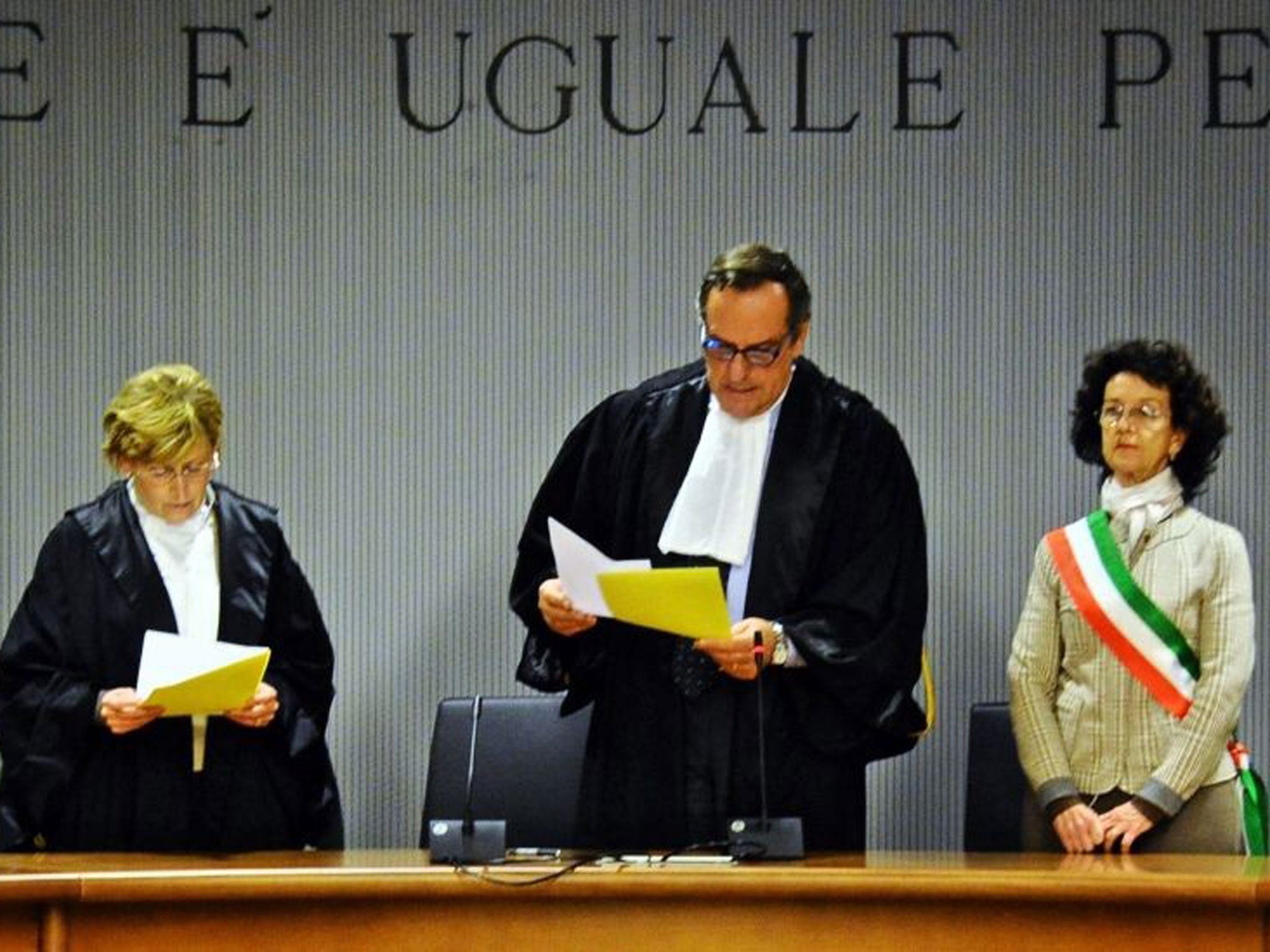'Evidence of a motive' for the crime behind Amanda Knox verdict
Interview by Italian judge in Meredith Kercher murder retrial sparks fresh controversy

Your support helps us to tell the story
From reproductive rights to climate change to Big Tech, The Independent is on the ground when the story is developing. Whether it's investigating the financials of Elon Musk's pro-Trump PAC or producing our latest documentary, 'The A Word', which shines a light on the American women fighting for reproductive rights, we know how important it is to parse out the facts from the messaging.
At such a critical moment in US history, we need reporters on the ground. Your donation allows us to keep sending journalists to speak to both sides of the story.
The Independent is trusted by Americans across the entire political spectrum. And unlike many other quality news outlets, we choose not to lock Americans out of our reporting and analysis with paywalls. We believe quality journalism should be available to everyone, paid for by those who can afford it.
Your support makes all the difference.The judge who reinstated murder convictions against Amanda Knox and Raffaele Sollecito has spoken for the first time about his anguish at coming to the controversial verdicts, and hinted at a series of "coincidences" that led to the death of the British student Meredith Kercher.
Alessandro Nencini, the president of the Florence appeals court, said yesterday a chance decision on the part of Knox to change her plans on the night of 1 November 2007 initiated a series of events that culminated in the brutal killing of Ms Kercher, an exchange student from Coulsdon, south London.
Crucially, Judge Nencini said the court had arrived at a motivation for the crime, adding that it would emerge fully when a detailed reasoning for last week's judgment is published in the coming months.
However, the interview was criticised in the Italian press, with Sollecito's lawyers, Giulia Bongiorno and Luca Maori, reportedly accusing the judge of "very serious, indeed unacceptable" behaviour by commenting on the case.
On Thursday, the Florence court sentenced Sollecito to 25 years in prison and Miss Knox to 28 years and six months in jail, handing her a heavier sentence after finding her guilty of libelling a Congolese bar owner, Patrick Lumumba, by falsely accusing him of being the killer.
The court has 90 days in which to release its reasoning for upholding the guilty convictions. Judge Nencici did, however, shed some light on the jury's deliberations.
"At the moment all I can say is that at 20.15 that night, they had different plans; then these were ditched and the occasion [to commit the crime] was created," he said. "If Amanda had gone to work she probably wouldn't be here now. There were coincidences and on this we have developed our reasoning. We realise this will be the most controversial part."
Last week's developments were the culmination of a series of appeals since Knox and Sollecito were first found guilty of murdering Ms Kercher in 2009. In the latest appeal, the prosecution's original and widely ridiculed theory of a drug-fuelled and black-magic tinged orgy gone wrong was ditched in favour of a domestic dispute arising from a dirty toilet in the Perugia house shared by Knox and Ms Kercher.
In his interview with Corriere della Sera, Mr Nencini, 58, spoke of his anguish as a father at inflicting such heavy sentences on two young people, but he was confident the right decision had been reached. "I have children, and inflicting sentences of 25 and 28 years on two young people is a very difficult thing. I feel relief because the moment of the decision is the most difficult part," he said.
However, his decision to speak to the media so soon after the verdict sparked criticism. "A judge should never comment [to] the public [on] its decisions," wrote one reader on the newspaper's website. "By now the mania involves everyone."
Knox, 26, remains in the US and has said she will fight any attempts to extradite her, should the sentence be upheld by the Supreme Court of Cassation. Yesterday Angela Antonietti, a guard of Knox's at Capanne prison, near Perugia, reportedly said her charge never cried or showed remorse, and became known by her jailors as the "ice maiden".

Her former boyfriend Sollecito, 29, had his passport confiscated on Friday after driving some 250 miles to the border of Austria and Slovenia. He has denied reports that he was planning to flee, and both insist they are innocent of the murder.
Asked if the 12 hours needed to arrive at Thursday's decision indicated disunity among the two judges and six lay members of the jury, Judge Nencini said all eight were united in reaching their guilty verdicts. He noted that on the day of the deliberations, the jury had to go over 30 separate pieces of evidence.
"We took all the time necessary bearing in mind also that the victim was a young girl," he said. "I can tell you that in all these months, and in particular when we were considering our verdict, we noted the gravity of a conviction that involved young people and entire families."
The judge denied having been influenced, or limited, by the Supreme Court of Cassation – Italy's major court of last resort, housed in the Palace of Justice, Rome. It was this court that had annulled the first appeal in the case, allowing Knox and Sollecito to go free three years ago.
The Kercher family said the six years of legal wrangling since Meredith was killed had compounded their loss. They urged the US to extradite Knox. The State Department and the White House have declined to comment, saying the matter remains "private and confidential". The US has had an extradition treaty with Italy since 1984.
Join our commenting forum
Join thought-provoking conversations, follow other Independent readers and see their replies
Comments